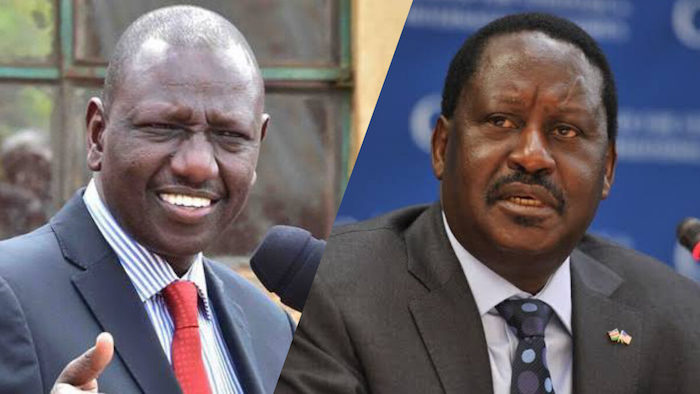Kenyan presidential candidate Raila Odinga, who lost the election to William Ruto on August 9, filed an online case with the country’s highest court on Monday, his lawyer told AFP.
Veteran opposition leader Odinga, who was supported in his campaign by the ruling party, has declared the election results to be “a disgrace.”
About 230,000 votes separated him from Ruto, or less than two percentage points.
Attorney Daniel Maanzo said, “It has already been forwarded to them and they will receive it shortly.” The petition was submitted on behalf of the 77-year-old congressman.
We believe we have presented a strong case and stand a good chance of success,” he continued.
According to Paul Mwangi, another of Odinga’s lawyers, a hard copy of the petition would be submitted to the Supreme Court by the 2 pm (1100 GMT) deadline today.
Although election day itself went off without a hitch, the revelation of the results a week ago triggered angry rallies in some Odinga strongholds, and there are fears that a prolonged debate could escalate to violence in a country with a history of post-poll turmoil.
Every Kenyan presidential election since 2002 has been marred by controversy, and this year’s result has even led to discord inside the body responsible for running the election, the Independent Electoral and Boundaries Commission (IEBC).
Even after President Uhuru Kenyatta was declared the winner of the presidential election in August 2017, Odinga, who was making his sixth attempt at the presidency, went to the Supreme Court.
It was a first for Africa, and Odinga boycotted the new election that was held after the court nullified the old one. A police onslaught on protesters resulted in the deaths of dozens of people.
All judges have been given a deadline of February 14. A fresh vote would need to be held within 60 days if they ruled that the election should be nullified.
Dozens of whistles were blown and signs reading “Electoral Justice Now!” and “We want justice now” were waved by hundreds of Odinga supporters as they gathered outside the court on Monday to demand their man be found innocent.
One man, wearing a crown made of plants, stated, “Odinga must win so that we get the 6,000 shillings ($50) promised in his platform.” This referred to a monthly cash distribution for disadvantaged households.
A second man, carrying a Bible and sporting enormous green glasses, prayed on the courthouse steps while officers stood guard.
A court clerk told reporters that the tribunal had already received one petition from a voter contesting the result, and that the judges were anticipated to hear other petitions.
Last week, Odinga declared that the IEBC’s numbers were “null and void and must be quashed by a court of law,” despite the fact that he and Kenyatta reconciled in 2018 and won the president’s support for his campaign.
Since it had come under fire for its conduct of the election in August 2017, the IEBC was under intense pressure to ensure a fair vote.
Shockingly, however, four of the IEBC’s seven commissioners accused chairman Wafula Chebukati of operating a “opaque” operation and later declared the figures did not line up, and this occurred just before the results were revealed.
Despite “intimidation and harassment,” Chebukati denied the allegations and said he had fulfilled his duty in accordance with the law.
Constitutional lawyer Charles Kanjama told AFP there was “some doubt” about whether or not Chebukati needed the commissioners’ approval to release the results, but other legal experts disagreed.
Considering Odinga’s claims that he was unfairly denied victory in the 2007, 2013, and 2017 elections, the results of this election are being closely monitored as a barometer of democratic maturity in the East African superpower.
Both leading candidates have said they will take their differences to court rather than to the streets.
Since the results were announced, both Odinga and Ruto have spoken out, with the former praising his followers for “remaining calm” and the latter striking a conciliatory tone by promising to “operate with all leaders.”
After the 2007 election, more than 1,100 people were killed in politically driven confrontations between opposing tribes in Kenya.
If the Supreme Court upholds the results, Ruto will become Kenya’s fifth president since independence from Britain in 1963, taking over the reins of a country battling surging inflation, high unemployment and a crippling drought.
